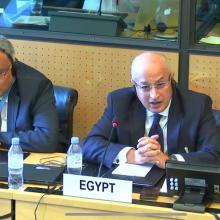Independence is a fundamental tenet for an effective administration of justice. None-interference from the executive has to be granted in order to ensure equal access to fundamental guarantees for all. The absence of interference and pressure of any kind ensures that courts and judges decide cases impartially and in accordance with the law, so that citizens have confidence that they will not be victims of abuse. Therefore, having an independent judiciary is crucial to the effectiveness of the rule of law. Recognising its fundamental importance, the United Nations, in 1985, adopted the Basic Principles on the Independence of the Judiciary.
A truly independent judiciary system is essential for the protection of human rights, because it protects citizens from unlawful acts of the government, ensures that perpetrators are brought to justice to receive a fair trial and that victims obtain effective remedies.
Issues affecting the independence of the judiciary in Arab countries range from an increased use of exceptional “State Security” courts composed of judges selected by the executive, to the prosecution of acts of peaceful dissent as well as trials of civilians by military courts. Moreover, governments frequently harass or punish judges and/or lawyers, who carry out their work with independence and try to protect fair trial rights of citizens.












